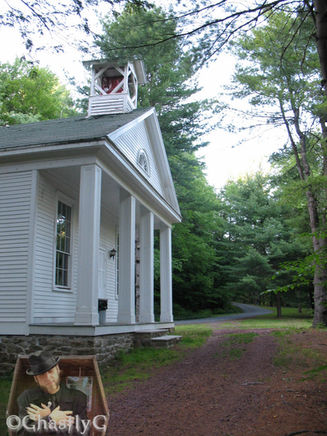
Pennsylvania: Hickory Run State Park
The many ecological challenges that face our world today are not exactly new threats. In fact, a prime example of what happens when you ignore the obvious, and continue to put the dollar ahead of our well being, can still be found today at Pennsylvania’s Hickory Run State Park, and the Lehigh Tannery.
These once neighboring villages have both succumb to a tragic end, due to such greed. In the early 1800’s, after the completion of the Lehigh canal, logging quickly became a prosperous venture. This area flourished with small villages, looking to cash in on the industry and its workers. Hickory Run and Lehigh Tannery where among these logging communities.
Hickory Run possessed its own stores, post office, saw mill, blacksmith, church, as well as homes. A little Further up the river was Lehigh Tannery (named after the Lehigh Tannery which stood on the banks of the Lehigh River). This town was also a thriving little development, complete with a hotel, schoolhouse, multiple railways, an ice house and a steam saw mill, as well as home to over one hundred families. All of this, would be destroyed.
In an area situated on a mountainside bank of the Lehigh River, flooding would often occur. Tree limbs and roots would help by absorbing the rainfall, slowing the flooding process. But after the over logging of the mountainside, a massive flood hit the area, destroying many of the communities. But they would all rebuild. The fresh water which supplied the towns, businesses, and the multitudes of wildlife, began to run black and foul. This was a result of the waste dumped into the river by the Tannery. Despite the problems, they continued to contaminate the water. The final blow to this area came in 1875, when the land (now covered by debris and discarded trees, cut down strictly for their bark) ignited a fire that destroyed the tannery, along with the rest of area.
More than one hundred years later, Hickory Run State Park shows little evidence of the horrible tragedies. In fact, nature reclaimed this area beautifully and it is open to the public for camping, hiking and other outdoor activities. You can still visit the ruins of the Lehigh Tannery and some of the buildings left from these pioneering towns.
-GhastlyG

















